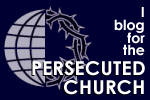In Doing Christian Ethics from the Margins, p. 177, De La Torre contends that the doctrine of the Trinity “maintains that it is God’s nature to share. God invites all to share divinity and power with God and each other, or as Paul would promise, to become ‘coheirs with Christ’ (Rom. 8:17).” He goes on to argue that the model of the Trinity “calls for the dismantling of social structures that maintain economic injustices and dominance and oppression that foster marginalization. How, then, can those who insist on maintaining their power and privilege become part of the body of Christ?”
What is your response to De La Torre’s claim? How might the doctrine of the Trinity be taught in your church to summon believers to relinquish their privileges for the sake of a more just social and economic order?
Answer:

First, De La Torre states that "Those doing ethics from the margins believe that Jesus, and all the prophets before him, understood God's reign to mean a striving toward establishing the Trinity model as the foundation for a social order where justice prevails for all. God's reign is not limited to the other-worldly, but also exists in the here and now". (De La Torre, 177). I have a few statements to make here. Will we ever abolish poverty before the new heaven and the new earth? I say no, per Mark 14:7 ("For you always have the poor with you, and whenever you wish you can do good to them; but you do not always have Me), then the answer is, no. Understanding Jesus' words can prevent our brothers and sisters from being overwhelmed and "burning out" from the overwhelming reality of the poor in the world. If God's reign is in the here and now, BUT not fully realized, then poverty cannot be abolished....right now. However, how does one define "poor"? I do not see this topic discussed in De La Torre. I have been quite content and happy living on Top Ramen in my life. Is this what we are to abolish? The poverty in which one cannot even sustain oneself or their family due to social, political, or economic reasons? Where do we draw the real line for those poor in the world in which they are no longer classified as "poor"? The way that the United States define the "poor" is not realistic with the cost of living for example, in California. But how does this compare to Darfur? Not even close. We as Christians are compelled to do our best to eliminate poverty that prevents people from living by having access to the basic human rights: food, clean water, and housing. However, we are instructed to create the opportunity for these people to hear the Gospel message.
I have issues with the doctrine of the Trinity per De La Torre because it is in my opinion, taken out of context. If I should give up the few dollars that I have in order to help a brother or sister, I will do it and I have done this in the past. However, it makes no difference if they do not receive the Gospel message...what good have I really done? Sustained them for a day, week, or month? Big deal! The "good works" that I do mean nothing...the Good Works that He places in my path are His Good Works and are the Lords Good Works. There is a difference between the two. This is what I believe De La Torre is trying to explain, but fails to make a clear distinction.


















